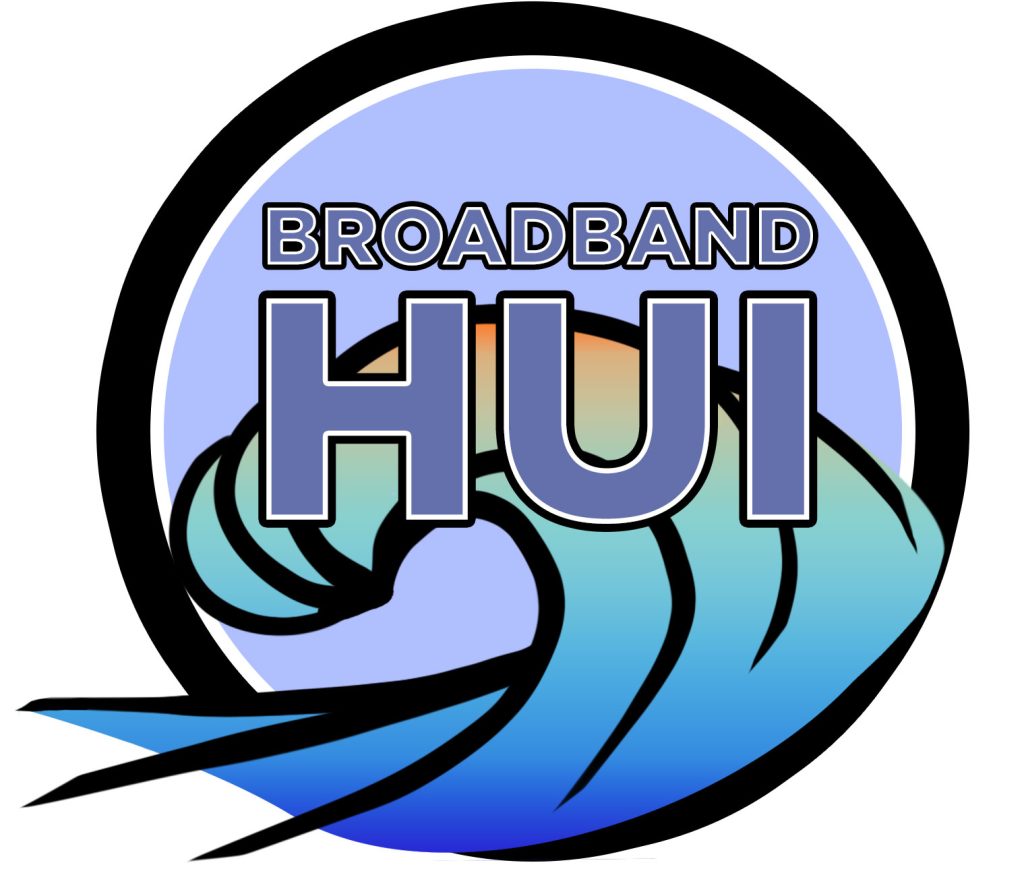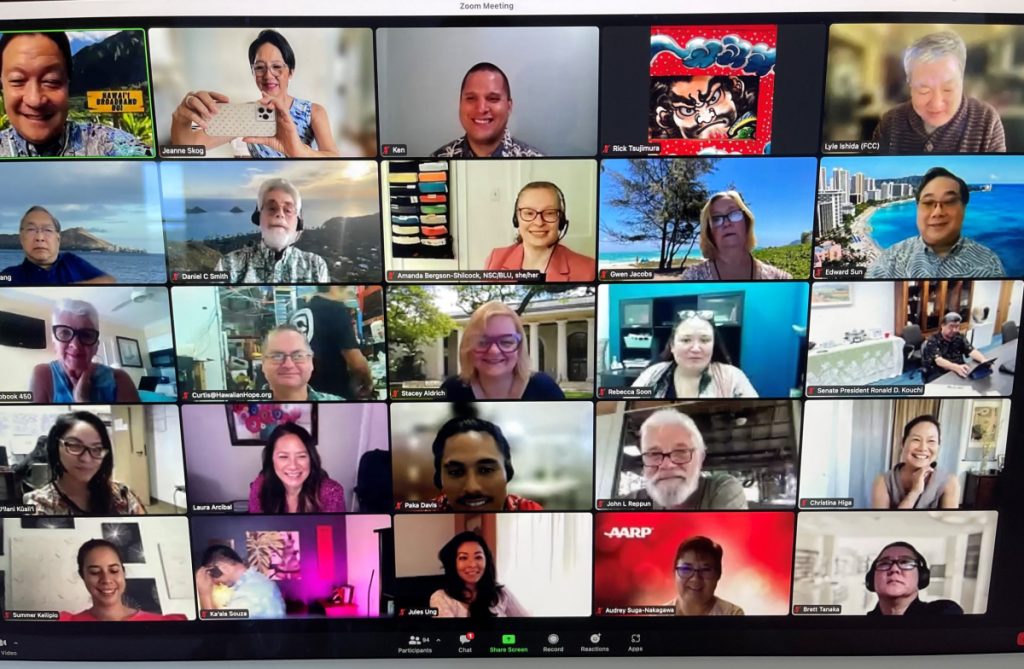Broadband Hui


On March 25, 2020, DBEDT teamed up with community stakeholders, Transform Hawaii Government and the Economic Development Alliance of Hawaii to convene the Broadband Hui as a way to address gaps in broadband access, close the digital divide and achieve our digital equity goals. The Broadband Hui is now convened jointly by Hawaii County and the Waianae Coast Comprehensive Health Center. You can learn more about the Broadband Hui here.
Developed in Fall 2020 our guiding document is the Digital Equity Declaration and it still holds true years later. As a result we’ve adopted the motto Broadband for A.L.L. (Access, Literacy, Livelihood)
The Broadband Hui has grown in size and is represented by the private sector, non-profits and public sector and meets every first and third Wednesday of the month at 9:00am HST.
You can also find an archive of agendas and zoom videos of previous BBHui calls here.
If you are interested in joining the Broadband Hui please feel free to contact Chrissy Kuahine or Shola Kahiapo-Trevino.
Calendar of Events
Broadband Hui’s Code of Conduct
Adopted from Code for America’s Code of Conduct: https://github.com/codeforamerica/codeofconduct
The Broadband Hui community expects that the Broadband Hui network activities, events, and digital forums:
- Are a safe and respectful environment for all participants.
- Are a place where people are free to fully express their identities.
- Presume the value of others. Everyone’s ideas, skills, and contributions have value.
- Don’t assume everyone has the same context, and encourage questions.
- Find a way for people to be productive with their skills (technical and not) and energy. Use language such as “yes/and”, not “no/but.”
- Encourage members and participants to listen as much as they speak.
- Strive to build tools that are open and free technology for public use. Activities that aim to foster public use, not private gain, are prioritized.
- Prioritize access for and input from those who are traditionally excluded from the civic process.
- Work to ensure that the community is well-represented in the planning, design, and implementation of civic tech. This includes encouraging participation from women, minorities, and traditionally marginalized groups.
- Actively involve community groups and those with subject matter expertise in the decision-making process.
- Ensure that the relationships and conversations between community members, the local, state and federal government staff and community partners remain respectful, participatory, and productive.
- Provide an environment where people are free from discrimination or harassment.
Broadband Hui reserves the right to ask anyone in violation of these policies not to participate in Broadband Hui network activities, events, and digital forums.